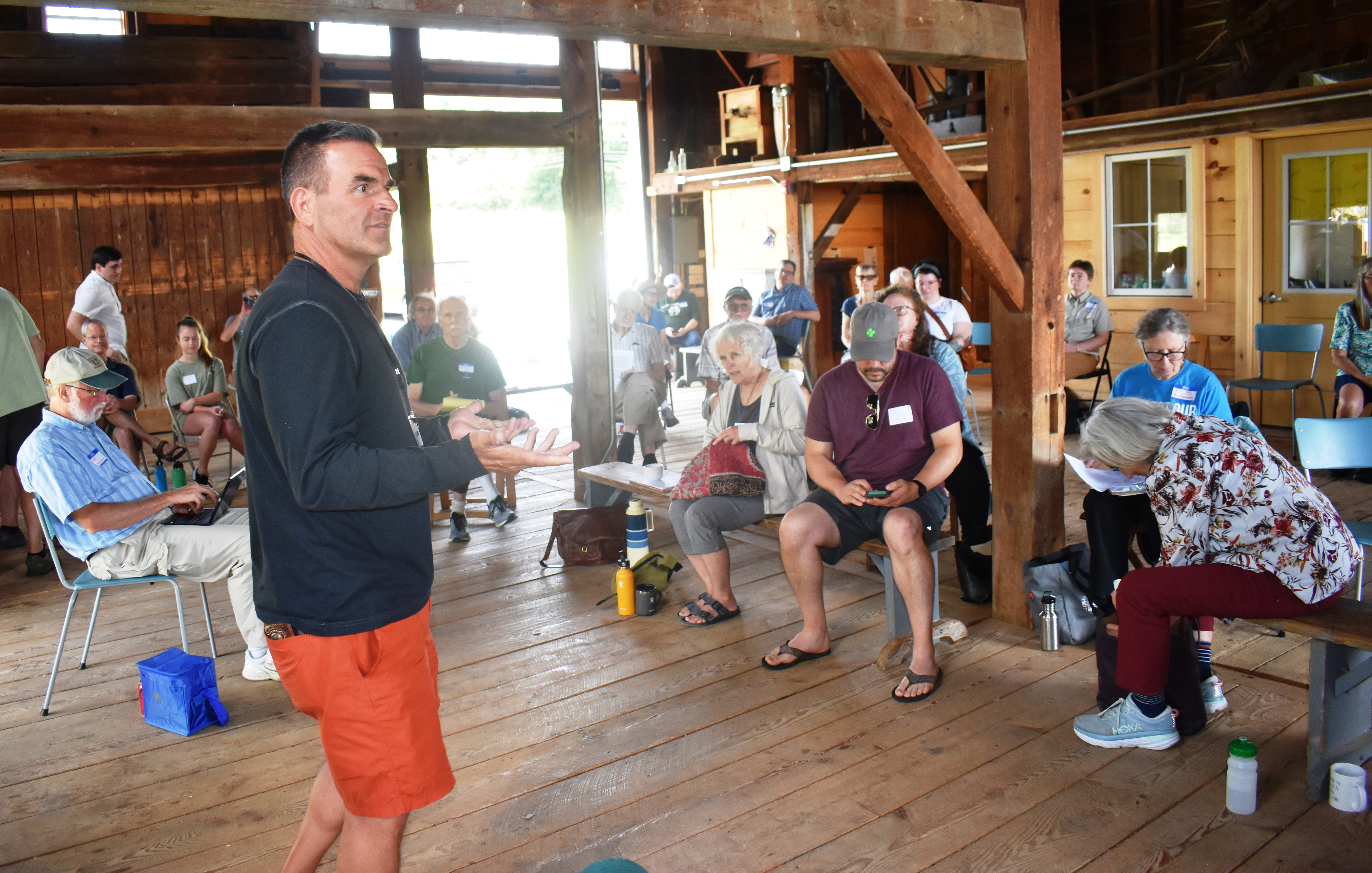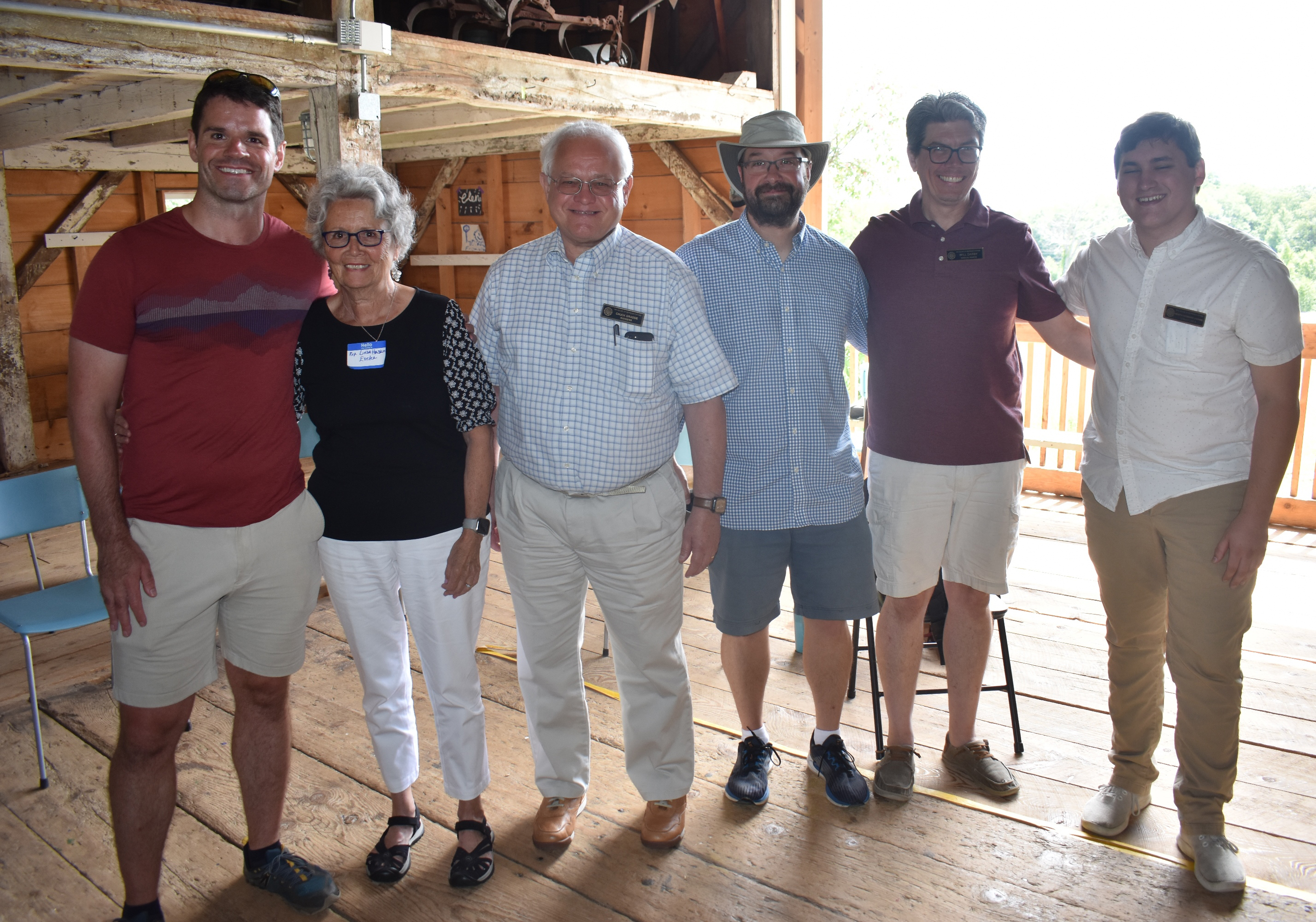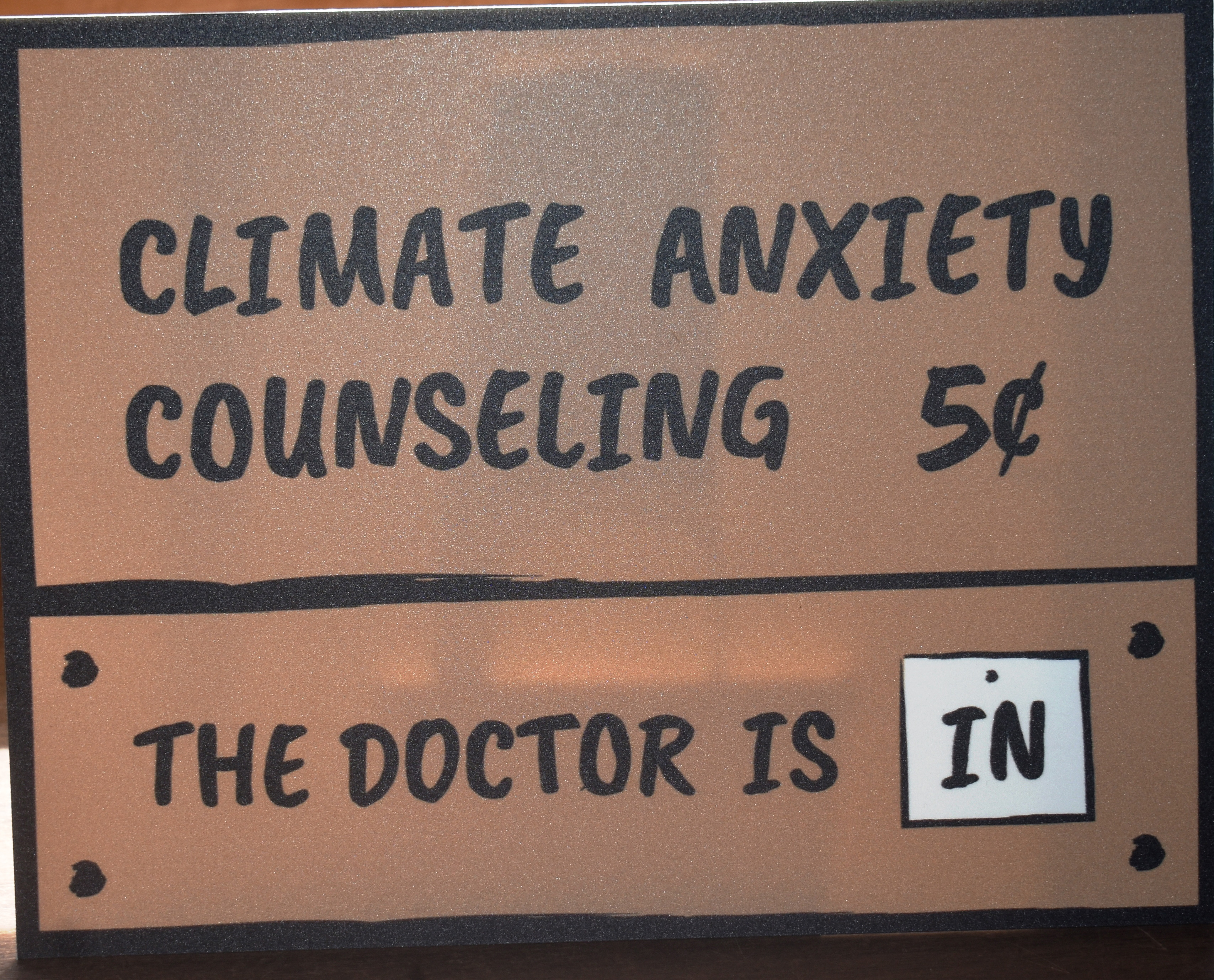Focus on Legislature seen as key to making inroads
The best way to promote efforts to reverse climate change, such as installing solar arrays, is to emphasize their impact on the bottom line, environmental advocates say.
Representatives of environmental groups, as well as several lawmakers, recently gathered in Laconia to exchange ideas on how to protect New Hampshire’s environment and reverse climate change, in part by changing the makeup of the Legislature.
Sponsored by Save Forest Lake and the New Hampshire Network, the Keep NH Green summit was held Aug. 12 at the Prescott Farm Environmental Education Center in The Weirs section of Laconia, about a mile west of Lake Winnipesaukee. The event drew about 70 attendees, among them six members of the NH House of Representatives.
Rep. Jared Sullivan, D-Bethlehem, who is an economist, said the U.S. is behind the world in addressing climate change, and that New Hampshire lags behind other states.
“We don’t have a carbon plan,” Sullivan said — something that would allow the Granite State to be eligible for federal climate change funding.
He said some Republicans, who control the state House, Senate, Executive Council and governorship, are climate-change “deniers” who deliberately stymie efforts to pass climate-change legislation.
Given the level of denial, Sullivan urged that local messaging about climate change focus on how dealing with it is cost-effective. In his hometown, for example, nearly all municipal buildings are powered by solar energy.
“Even if you don’t care about climate,” a solar array will pay for itself in about seven years, which represents a smart investment, said Sullivan, and that savings is something most people will care about.
He urged support for a business-to-business model of promoting solar power, like that under way by Rek’ Lis Brewing Co. in Bethlehem.

Jon Swan, founder of Save Forest Lake, addresses attendees on Aug. 12 at the KEEP NH GREEN summit. (Photo by John Koziol)

Left to right, State Reps Jared Sullivan, Linda Haskins, Chuck Grassie, Nick Germana, Will Darby and Heath Howard were among the attendees of the KEEP NH GREEN summit on Aug. 12. (Photo by John Koziol)
Sullivan said it was important to identify lawmakers who are impediments to addressing climate change, and to run challengers against them, even if the challengers were more moderate Republicans.
“There are people in the State House that we can pick off,” said Sullivan, with an audience member interjecting that the GOP’s hold on power in that body is tenuous and that a Sept. 19 special election for the Rockingham County Dist. 1 seat — Nottingham/Northwood — could result in a tied House.
‘Laggard’ on climate change
Jon Swan of Dalton, who is the founder of Save Forest Lake, a nonprofit that is opposing a plan to build a landfill near Forest Lake State Park, summed up that the summit was a powerful opportunity to share information among those who attended.
He said information about the summit would be provided to and posted on the website of the New Hampshire Network, whose mission is to “foster clean, cost-effective investments and environmentally responsible policies, laws and regulations, making New Hampshire a leader rather than a laggard in addressing pollution and climate change.”
In announcing the summit, Swan and Lois Cote of the NH Network, said the past legislative session “produced too many setbacks for environmental legislation.” They hoped the summit would unite the state’s “environmental communities to come together and create a unified strategy.”
Asked whether the summit and its goals are antibusiness, Swan gave an emphatic “no.”
“If it’s good for the environment, it’s a good thing,” he said, adding that “what boggles my mind is the opposition” to legislation that would protect the environment.
Earlier during the summit, Swan acknowledged that there have been positive actions in the Legislature to encourage composting and diversion of food waste.
Rep. Chuck Grassie, D-Rochester, cautioned that recycling has to be promoted in a way that doesn’t sound like an order because there are people, who, philosophically, will not recycle if it’s mandated.
Audience members called for an overhaul of the state Department of Environmental Services whose mission is to “help sustain a high quality of life for all citizens by protecting and restoring the environment and public health in New Hampshire,” according to its website, but which some have perceived as being more interested in providing permits for development.
The DES was asked to do more enforcement of its regulations, including of the state’s six landfills, for which there is only one inspector.

In an homage to Lucy Van Pelt of the “Peanuts” comic strip, a sign at the KEEP NH GREEN summit on Aug. 12, announces that help is available to address climate change. (Photo by John Koziol)
Following more than two hours of internal conversation among subgroups, the summit ended with a discussion of priorities and a realization that most were interrelated, be they the siting of landfills and dealing with PFAS and “forever chemicals,” and that, collectively, they fell under the rubric of “climate change.”
A landfill, one person observed, “is a PFAS factory,” whose leachate can contaminate water supplies and wells. The leachate is taken to a regional waste-water treatment facility, he continued, but those facilities were never designed to treat PFAS.
Although a statewide issue, Swan said no PFAS has been detected in Forest Lake nor in surrounding wells, and suggested expanding testing for the chemicals to other lakes in the state.
The best way to promote efforts to reverse climate change, such as installing solar arrays, is to emphasize their impact on the bottom line, environmental advocates say.